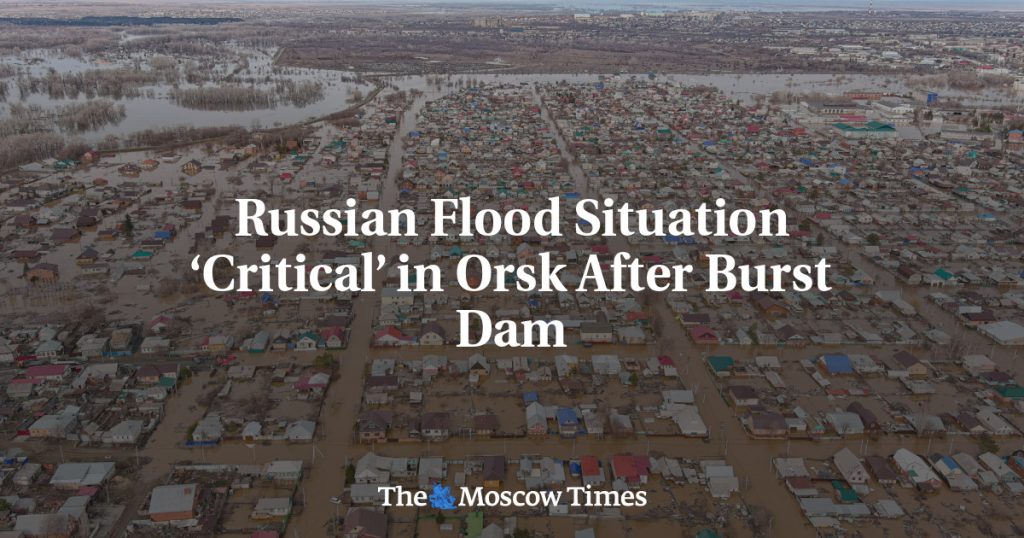A major flood in the city of Orsk has forced thousands of people to evacuate after a dam burst in the southern Urals near the border with Kazakhstan. Emergency Situations Minister Alexander Kurenkov declared the situation “critical,” with over 4,500 homes flooded and more than 4,000 people relocated to temporary housing centers. Images on Telegram showed the minister on a boat surrounded by emergency service members as they worked to manage the aftermath of the flood caused by torrential rain and the bursting of the dam built in 2014. Authorities have initiated a criminal case for negligence and violation of construction safety rules, while also warning of a dangerous water level in the Ural River in the main city of Orenburg.
The situation in Orsk has been classified as a “federal emergency,” prompting reinforcements to be sent to the region and additional funds to be allocated to address the urgent needs following the flood. Melting ice during this time of year has worsened the situation, resulting in the dam intended to manage a 5.5-meter water level in the Ural River to swell to nine meters. Orenburg’s mayor, Sergei Salmin, alerted the half-million residents of the city to the possibility of evacuation as the water level continued to rise, with predictions that it would reach its peak on Wednesday. The floods have also affected neighboring Kazakhstan, with President Kassym-Jomart Tokayev describing them as one of the country’s worst natural disasters in 80 years. Several regions in the Urals and western Siberia have experienced flooding since the beginning of spring, further exacerbating the challenges faced by affected communities.
Emergency response efforts have been ongoing in Orsk and surrounding areas to manage the flood aftermath, with a focus on ensuring the safety and well-being of evacuated residents and addressing the damage caused by the burst dam and rising water levels. The burst dam and subsequent flooding have raised concerns about the resilience of existing infrastructure to extreme weather events and the need for improved construction safety measures to prevent similar incidents in the future. The involvement of local authorities, emergency services, and national government agencies has been crucial in coordinating response efforts and providing support to affected communities in their time of need. The collaboration between different levels of government and other stakeholders highlights the importance of preparedness and coordinated action in responding to natural disasters and mitigating their impact on vulnerable populations.
As the situation in Orsk and Orenburg remains critical, ongoing monitoring and response efforts are essential to address the evolving challenges posed by the flooding. The forecasted peak water level on Wednesday, coupled with continued heavy rain and melting ice, underscores the urgency of the situation and the need for proactive measures to protect lives and property. The resilience and solidarity of communities affected by the floods, as well as the support provided by national and international partners, will be crucial in navigating the recovery and rebuilding process. Lessons learned from this devastating flood event can inform future disaster preparedness and response efforts, guiding improvements in infrastructure, emergency planning, and risk management strategies to enhance the resilience of communities in the face of extreme weather events. By working together and sharing expertise, affected regions can recover from the current crisis and build a more resilient future for all residents.


